REAL English for REAL life
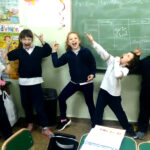
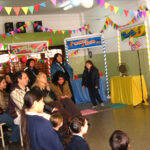
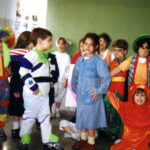
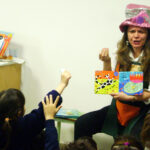
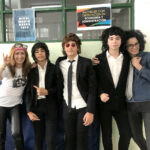
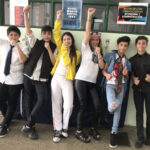
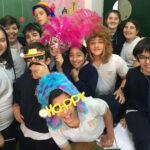
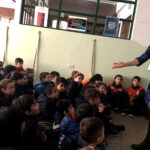
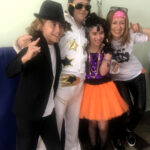
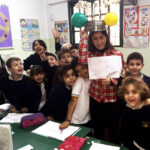
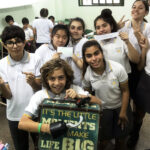
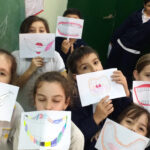

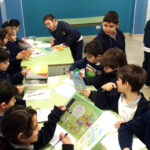
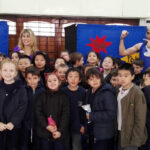
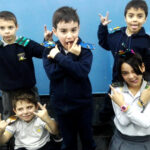
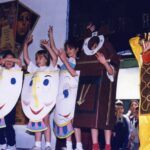
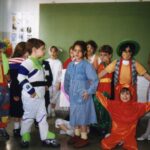
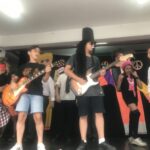
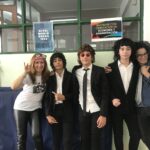
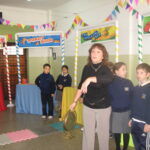
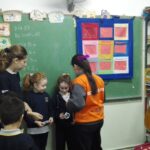
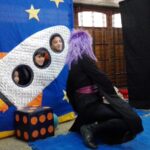

Focus
“REAL English for REAL Life”: Our focus is on action and meaningful learning. “DO” in English is our goal.

Immersion Programs
Social or content outings in which all students share an experience in the language outside of the classroom context: going to the theater and having tea, job interview, recreational weekend in a fifth with native speakers, etc.

English Club
In charge of students and teachers. Its objective is the organization of events in which not only a real and relaxed experience in the language is achieved, but also the links between students and teachers are strengthened. (cinema-debate / board games / wit Olympics, theme fairs, etc.)

International Exams
Our students close the primary cycle with an International Exam that endorses the knowledge acquired along the way (all of them with recognition scores within the Common European Framework of Reference for Languages)

Creative Corners
Hands-on workshops
Audio library with instructions to carry out projects of a different nature: cooking recipes, gardening, crafts, science experiments, etc.
Street workshops
Improvised staging in real contexts; finding out the way, going shopping, improvements to public space, solidarity programs, etc.
Active projects
From a common interest trigger, students are invited to participate in some micro-enterprise using the language throughout the process (environmental care campaigns, development of a sustainable product, redesign of the school agenda, interactive fairs, travel itineraries ).
Informal talks and conferences with natives
Face-to-face or distance meetings with natives; during which students exchange personal experiences or content information using the language in a spontaneous and real way.
Purpose
"Real English for real life"
The English Department of the Nuevo Sol Educational Complex has always been at the forefront in terms of methodology, personalized monitoring of its students and development of meaningful content for the acquisition of English as a second language.
Applying a natural communicative approach, our students manage to express themselves fluently and accurately from an early age. The use of dynamic teaching techniques and resources allows us to replicate real-life situations in the classroom and thus achieve our goal: clear and effective communication.
All the activities that we propose are developed in a framework that favors learning; ensuring that the teacher’s attitude towards errors is positive and builds knowledge naturally and fundamentally in a warm and pleasant environment.
Our objective not only aims to redimension the usefulness of a language as a tool for life from early childhood but also to promote learning in a playful and uncaring space, avoiding every possible inhibitory barrier.
The highly interactive classes with varied content try to replicate everyday situations in real life. Proactively, students are gradually immersed in the ideal setting to interact spontaneously, adopting the language as a second language. Meanwhile, the teacher assumes a role of facilitator of such interaction, offering all the technological and pedagogical resources at their disposal so that the students can “learn by doing”.
Although the largest workload is devoted to oral production, our approach, purely communicative and focused on solving tasks, forces us to integrate the four basic skills of the language.
• Oral communication
• Written communication
• Reading-comprehension
• Listening comprehension
These skills are consolidated and permanently reinforced with access to an educational platform, where each student can generate their own work autonomy, respecting their times and needs.
Methodologyt
DO, PLAY, ENJOY ... The essence of learning a language.
Definitely those who learn by doing, do more to apprehend. Getting inside a mirrored triangle and being part of infinity, kneading bread, building a toy, designing the plans of your house or simply respecting your turn to play propose to place both the child, the young person and the adult in another plane than that of being a mere receiver of content. Although this applies to all knowledge, in the acquisition of a language this is evidenced much more clearly.
The approach to a language must be natural and dynamic, replicating everyday situations that summon and above all invite enjoyment. There is no doubt that only if there is enjoyment there is learning. When we learn a language we immerse ourselves in the “unknown” and this causes anxiety and even inhibition. To get around this barrier we need to find some formulas that work: doing and playing pave the way and give meaning to our search; not only because they create the opportunity to use the language in a flexible and meaningful way, but fundamentally because it nurtures our intellect and is intimately linked to our essence.
By “doing” with the language, the doors of interaction between peers, of communication – real communication for real life – are opened. Those of us who engage in a motivating game or in an activity that has a compelling final product, “participate” and, in doing so, we need to understand, decipher messages and “communicate” meaningful ideas to the other, while requiring information to help us to solve a specific situation. What good is it for us to know complex codes, intricate structures and endless lists of vocabulary if we cannot solve problems or avoid everyday obstacles that simplify our lives?
Likewise, when playing, when doing, we must establish rules, codes and strategies that build the realm of the values of those who participate. The rules of the game must be interpreted, accepted and finally, respected by all. This guarantees us success during the very process, long before we see the final results. Just seeing the youngest disguised as fairies and geniuses fulfilling wishes to those who were touched with their own wands or young people actively intervening in a cultural simulation of a trip to London or answering a surprise business phone call convinces us that we are in the correct road.
Instructors and teachers have an obligation to rethink our role, focusing on the real needs of those who seek our guidance. The training of the teacher-guide to facilitate the process is essential, since a large part of the value chain lies in being able to capture the sensitive moments of each person and be able to present the appropriate tools. It is essential to exchange glances, deepen proposals and build from individuality in order to be successful in the group.
Learning a language is not far from who we are; Also when we acquire a language we must process, elaborate and create knowledge by ourselves, respecting the personal rhythm and capitalizing on all previous knowledge.
Many questions still have no answers, but the words of this anonymous author may guide us in the right direction.
I tried to teach my child from books,
(I tried to teach my child with books)
He gave me only puzzled looks,
(He looked at me disoriented)
I tried to teach my child with words,
(I tried to teach my child with words)
They passed by him often unheard,
(They passed him by, unheard)
Despairingly, I turned aside,
(Hopeless, I gave up)
How shall I teach this child I cried,
(“How will I teach this child?” I lamented)
Into my hand he put the key,
(In my hand he himself put the key)
“Come!”, He said and play with me!
(“Come,” he said, “and … play with me!”)
And for you who are an adult and do not dare to play, give yourself a chance and remember that as Sabina says:
“And play to play
without having to die or kill,
and live backwards
that dancing is dreaming with your feet. “
Contact
For inquiries please contact
nuevosolprimario16@gmail.com
Director: Prof. Susana Umaran
Pedagogical Coordinator
: Prof. Marta Cotta
Secretary: Laura M. Coll

– © Complejo Educativo Nuevo Sol –
Dr. Gregorio Aráoz Alfaro 373/442 (Altura Acoyte 200) – CABALLITO
Ciudad Autónoma de Buenos Aires – República Argentina – (C.P. 1405)
Tel: 4903-4378 (Conmutador) 4902-8005 (Jardín) 4904-0772 (Primaria) 4901-0099 (N. Medio)
